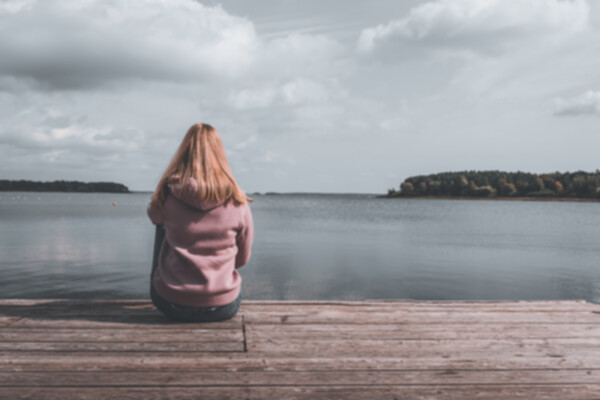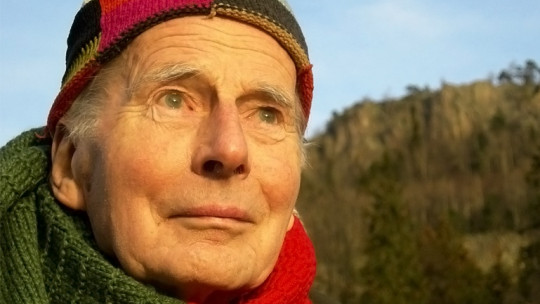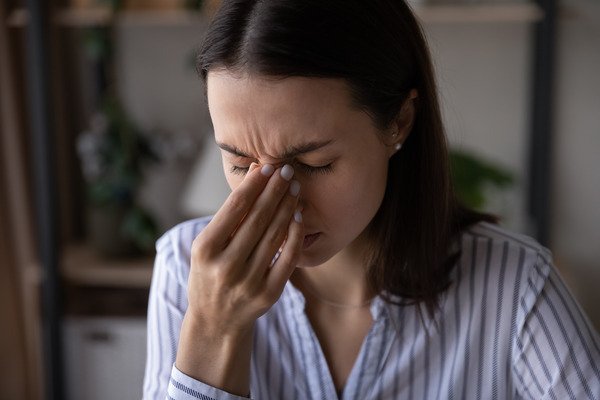Can the current state of the planet affect our mental health? What does it mean to suffer from ecoanxiety? Find out what ecological anxiety is and how to deal with it.

When a person experiences a major ecological disaster, such as a tsunami or tornado, it is completely reasonable for them to begin to feel anxious that something similar could happen in the future. Even so, people who suffer from ecological anxiety or ecoanxiety they may not have experienced an ecological disaster. In these cases, concern about climate change or catastrophes related to it are the main triggers. But why does ecoanxiety occur?
What is ecoanxiety?
The American Psychological Association (APA) points out that the ecoanxiety It is a chronic fear of environmental destruction. In fact, research indicates that in the last decade ecological disasters have had an impact on the mental health of the population. Primarily, there is a specific fear centered on anxiety about climate change, pollution, deforestation, flooding, or lack of access to food or water.
Although currently, the ecoanxiety It is not a mental health disorder, the reality is that it can be related to generalized anxiety disorder (GAD) or a specific phobia. Therefore, they are conditions that can end up affecting the well-being of the person who suffers from it. It should be noted that it is completely normal to experience anxiety due to natural disasters or the state of our planet. Even so, problems arise when this anxiety begins to very negatively affect physical or mental health or general well-being.
Symptoms of ecoanxiety
The people that experience ecological anxiety They may suffer from the following symptoms:
- Excessive stress: This stress can arise due to constant exposure to news or information about catastrophes or ecological disasters.
- Sadness or hopelessness: People who suffer from ecoanxiety may feel hopeless about the current state of the planet.
- Worry: They may think too much about the ecological problem, which can interfere with their daily life or even their rest.
- Experiencing difficulties at school or work: Due to the fixation with this problem.
- Lack of control: Overthinking about natural disasters can make people feel like they are losing control over the situation or their personal choices.
These are some of the signs that could indicate that a person suffers from ecoanxiety Given these signs, it is important to go to a mental health specialist.
What are the causes of ecological anxiety?
There are a series of causes that can influence the development of ecological anxiety or ecoanxiety, such as personal experience, constant exposure to related news in the media, or working in a sector related to climate change. Some of the main reasons why it arises may be the following:
- Experiencing an ecological disaster: When a person has suffered trauma due to an ecological catastrophe, this can end up affecting the person’s perception of safety.
- Expose yourself to information about environmental threats: When something bad happens, it usually appears all over the media. Constantly exposing yourself to this type of information can make you end up feeling too overwhelmed by it.
- Being in a vulnerable situation: Populations most exposed to disasters caused by climate change tend to feel more ecological anxiety.

How to deal with ecoanxiety?
Although the ecoanxiety It is not an official mental health diagnosis, it is usually related to disorders such as anxiety or trauma. Therefore, you can deal with it by following the following tips:
- Limit exposure to related news: In many cases, learning about news about ecological crises can make you feel helpless. Therefore, if you feel overwhelmed by this type of news, it may be a good idea to take some time to rest from social media or television.
- Make small changes in your life: The ecoanxiety It is usually closely related to feelings of helplessness in the face of climate crises. In these cases, a good measure is to try to act on what can be controlled, which is our impact. That is, do everything in your power to reduce pollution.
- Be patient: Having so many commitments to the planet can overwhelm you, so it is vital to try to be patient with yourself. In addition, it is important to understand other people’s positions and argue your position as assertively as possible.
- Connect with nature: Can deal with stress and eco-anxiety trying to connect more often with nature and the environment. In fact, there are many benefits related to contact with nature, as it can help you recover from different stressors or symptoms related to eco-anxiety.
- Get involved with your community: Getting involved in different acts of volunteering can help you feel more useful in the face of ecological impact. Additionally, it will also increase your sense of connection and improve your ability to talk about things. symptoms related to ecoanxiety
- Maintain an optimistic thought: It will do you no good to have a pessimistic perspective, only to harm yourself. Therefore, it is advisable to try to promote a more positive attitude towards the situation and its impact.
- Practice self-care: It can be very useful for you to try to improve your interior. This involves doing regular physical exercise, having a balanced diet, and above all focusing on your mental well-being.
- Go to therapy: If you think that eco-anxiety is affecting you too much, it is important that you go to a professional psychologist. In fact, it can be very helpful because it will help you deal with feelings of helplessness or anxiety related to these thoughts.
More and more people are experiencing ecoanxiety due to the negative impact that humans are having on the planet. Even so, the best thing you can do when faced with these feelings is to try to do the right thing to contaminate as little as possible and, above all, take care of your mental health.








